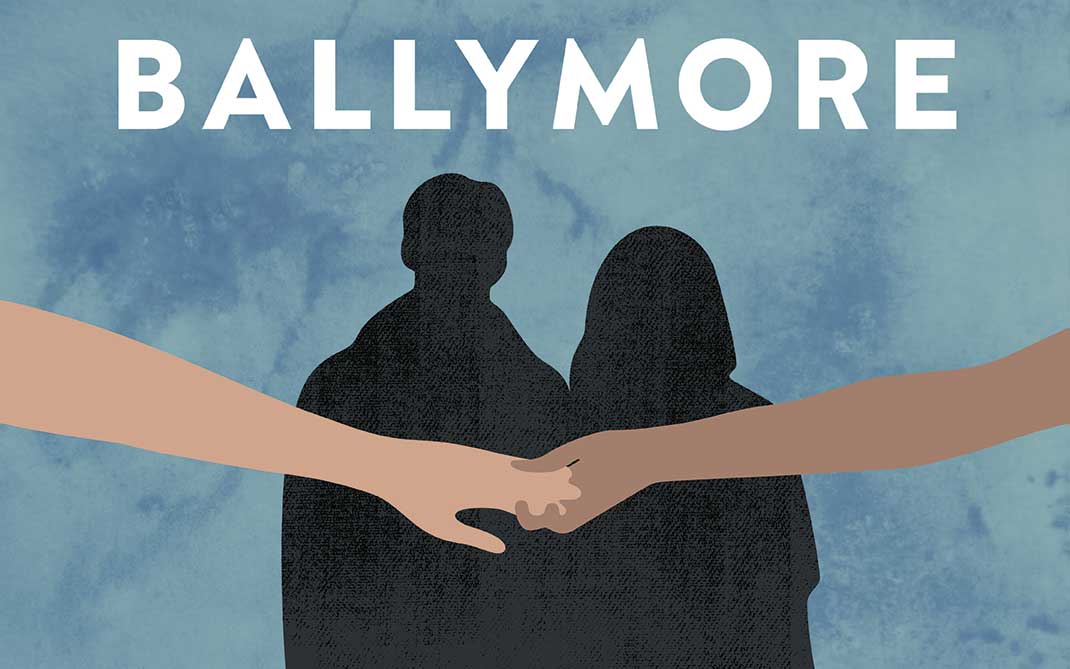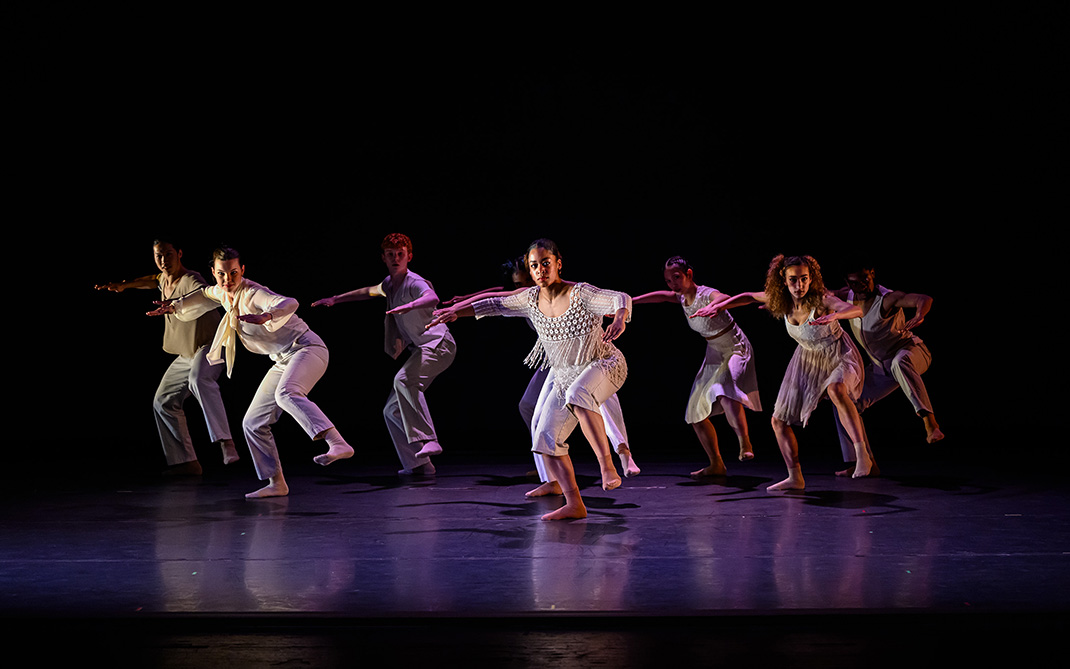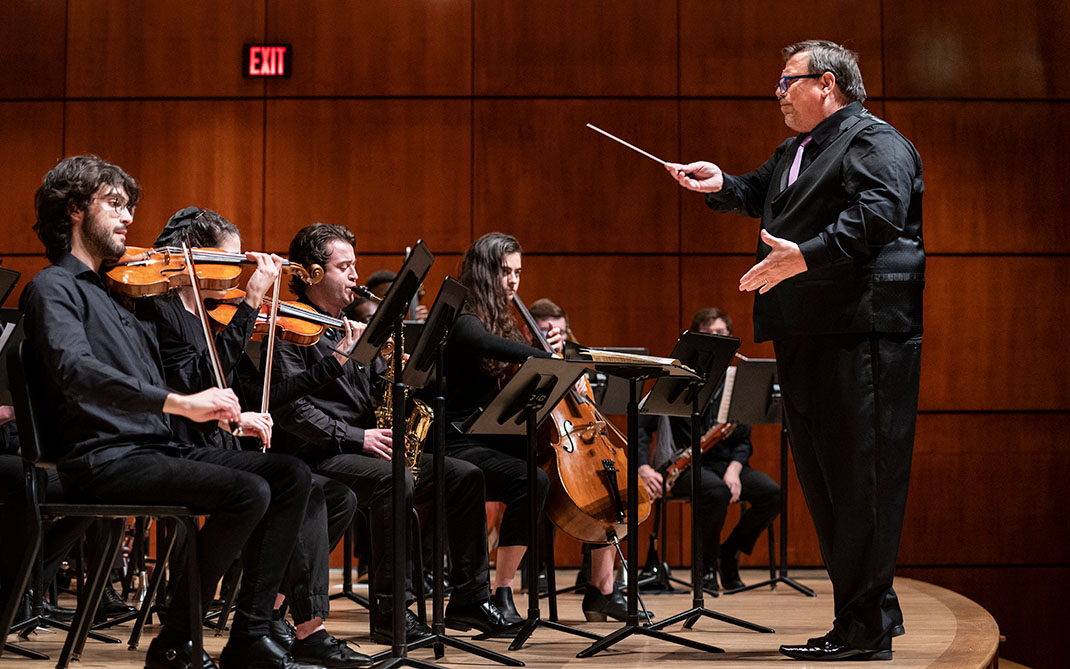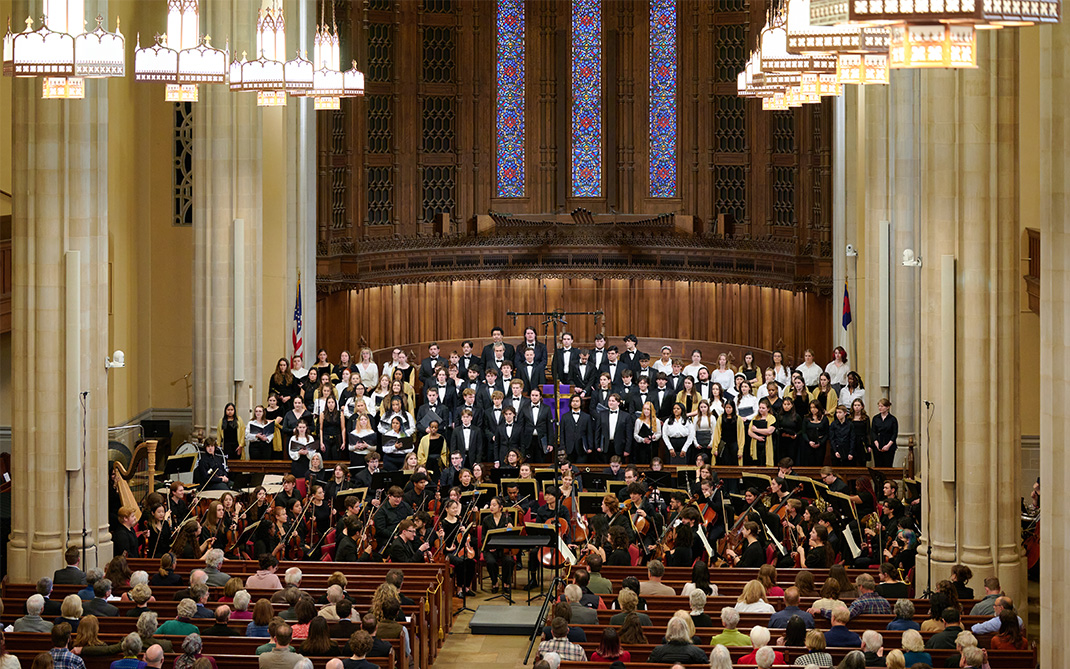UNCSA expert shares why Taylor Swift, BTS and more had their music taken off TikTok
It's being called the breakup of the century. Universal Music Group (UMG) — the music publishing company that represents music giants like Taylor Swift, Billie Eilish, Justin Bieber and BTS — pulled its entire catalog from TikTok after its licensing agreement with the platform expired on Jan. 31, 2024.
Now, millions of TikTok videos are muted and users are unable to use UMG artists’ music in any videos. “In some markets, that might account for more than half of the music used on the platform,” writes Billboard. So, what caused this momentous decision? Well, it’s a myriad of issues, which include but are not limited to pay disagreements and concerns about artificial intelligence (AI). Music industry expert and consultant for UNCSA Media Michael Winger breaks down what you need to know about the fallout below.
How we got here: The ongoing tech vs. music copyright battle
Citing Ted Gioia’s recent substack, Winger asserts that the breakup between UMG and TikTok is a classic battle between Silicon Valley and Hollywood. The technology players, like Meta, X and Amazon, want to reduce copyright protections and other hurdles so they can monetize music on their platforms and pay much less for it. Music artists and record labels want to protect copyright to maintain complete control over their intellectual property (IP) and its revenue. Winger points out that both players have a financial stake in the game.

Logos from Google
According to Winger, technology companies win these battles historically because they have far more monetary resources than their music counterparts. But in this game of chicken, where both TikTok and UMG have been flexing their muscles, UMG didn’t blink. Now, the ball is in TikTok’s court, and the social media giant has to find a solution. TikTok uses the same argument that broadcast radio has used for decades by claiming the promotional value of their platform overrides the need to pay the copyright holders. However, in the case of TikTok, they at least pay a small amount. Broadcast radio has an exemption in US copyright law that they have to pay songwriters and publishers but don’t have to pay performers or record labels.
AI-generated music recordings are a major pain point
AI is one of the primary driving forces behind the fallout between UMG and TikTok. TikTok wants to share audio without having to pay the royalties required from human-created music, and AI offers that opportunity; the social media platform has been increasingly utilizing and promoting AI-generated music.
In their open letter to the social media giant, UMG cites how “TikTok is allowing the platform to be flooded with AI-generated recordings — as well as developing tools to enable, promote and encourage AI music creation on the platform itself – and then demanding a contractual right which would allow this content to massively dilute the royalty pool for human artists.”
“TikTok is allowing the platform to be flooded with AI-generated recordings...and then demanding a contractual right which would allow this content to massively dilute the royalty pool for human artists.
Univeral Music Group
Long story short, TikTok pushing AI-generated music decreases the platform’s reliance on UMG’s catalog — TikTok spends less money on licensing music rights and, as a result, the production company and its artists receive less revenue. With UMG pushing back in negotiations, it seems they are looking to set a precedent on how platforms treat AI-generated content.
According to Winger, though, this battle may be shortsighted because major labels also want to use generative AI with their legacy artists — as seen through The Beatles’ most recent release, “Now And Then.” Using AI in these situations allows publishing companies to release more songs from popular artists who are no longer alive to make music that people still love to hear. For companies like UMG, going down this road may prove to be self-sabotage.
Payouts for publishing
The ongoing battle is also a major publishing issue because that's the least-paid portion of streaming on services like Spotify.
"Currently, 80% of streaming royalties are paid to the record labels and performers while the remaining 20% goes to the songwriters and publishers," Winger shares. "UMG owns a large, lucrative publishing catalog, and with the many user-generated covers that appear on the platform, they want to see more value for the songwriters and publishers."
And the fight with tech companies over publishing royalties isn't new for UMG. In 2012, the publishing group battled with YouTube and Vevo over a similar issue. The outcome was a milestone deal that instituted a new model allowing "songwriters and music publishers to share in revenues for music clips played online." Sounds familiar, right?
UMG owns a large, lucrative publishing catalog, and with the many user-generated covers that appear on the platform, they want to see more value for the songwriters and publishers.
Michael Winger
At the time of the landmark deal, National Music Publishers' Association CEO David Israelite emphasized that the new model was an "example of how record labels along with songwriters and music publishers can move forward together to ensure that the licensing process is more effective and efficient, and that all creators are fairly compensated."
Winger stresses that the issue between TikTok and UMG is very similar to the 2012 issue between YouTube, Vevo and UMG. "The music industry is, once again, navigating through a rapidly changing environment and UMG is trying to ensure they, and their artists, songwriters and music publishers, are protected and properly compensated for their work."
Did TikTok overplay their hand?
Winger argues that TikTok may have overplayed their hand in this battle. The platform knows that music labels need TikTok as a discovery tool for artists — both old and new. But UMG is the largest record label in the world, with many of the most prominent artists on their roster, such as record-breaking global superstar Taylor Swift, whose catalog alone has more streams than all classical and jazz genres combined.

Taylor Swift on the Eras Tour concert at Sofi Stadium in Inglewood, CA, Aug. 9, 2023 / Photo: Paolo V
By not budging in negotiations, TikTok risks losing users to competing platforms – users aren't showing signs of less Taylor Swift or BTS consumption, and they can move to Instagram Reels, YouTube or other platforms to get their fix.
How does it impact the artists?
Arguably, the most significant matter to Winger is how this fallout affects music artists themselves — especially those who aren't signed with major labels. He stresses how, in many ways, the music economy is splintering between the traditional music entities and the artists who build relationships with their fans. The industry is seeing a rise in the number of tools available to independent artists, and, with the rise of AI, they can market their music far more efficiently and connect with audiences in ways never possible before.
A prime example of this phenomenon is singer-songwriter Noah Kahan, whose career took off partly because his song "Stick Season" went viral on TikTok. Now signed to UMG's Republic Records label, Kahan's music has been removed from the very app that helped catapult his career. In response to his music being removed, Kahan shared a video on his profile where he told his fans, "I won't be able to promote my music on TikTok anymore," and that they will "have to pre-save forever now if you wanna listen to it."
Watch on TikTok
Social media enables the non-corporate funded artists to compete for audiences, which, in Winger's mind, is the benefit of platforms like TikTok. However, he imagines that is also a portion of why UMG is fighting TikTok – market share matters and major labels will go to great lengths to maintain it. What this move means for social media and independent artists remains to be seen. For now, millions of TikTok videos have become eerily silent, a muted testament to the ongoing battle between Big Tech and music industry players.
However, now might be one of the best times ever for an unknown artist to go all in on TikTok. UMG’s market share is now non-existent on TikTok but there are still large audiences. “If I were about to release some music, this would likely be the best moment in recent history for an indie artist to be discovered.”
Get the best news, performance and alumni stories from UNCSA.
SUBSCRIBE TO OUR NEWSLETTERS(OPENS IN NEW TAB)(OPENS IN NEW TAB)(OPENS IN NEW TAB)(OPENS IN NEW TAB)(OPENS IN NEW TAB)(OPENS IN NEW TAB)(OPENS IN NEW TAB)(OPENS IN NEW TAB)(OPENS IN NEW TAB)(OPENS IN NEW TAB)(OPENS IN NEW TAB)(OPENS IN NEW TAB)(OPENS IN NEW TAB)(OPENS IN NEW TAB)
February 08, 2024






